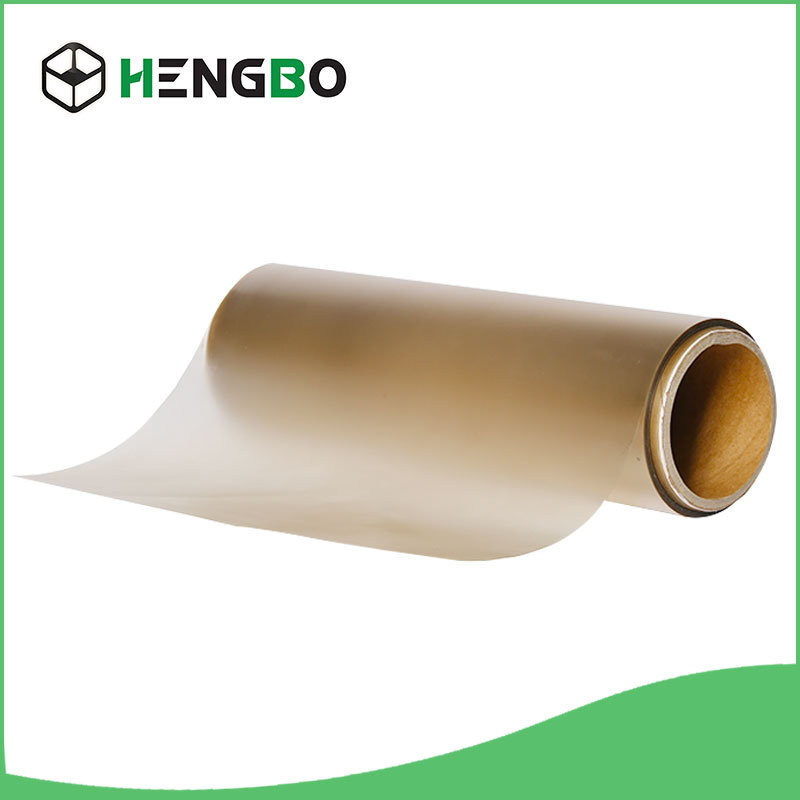Everything You Need to Know About PEEK Films
2025-01-13
What is PEEK (Polyether Ether Ketone) Film?
PEEK Film is a type of high-performance thermoplastic film made from polyether ether ketone (PEEK), a polymer renowned for its exceptional strength, thermal stability, and chemical resistance. PEEK is commonly used in demanding applications in industries such as aerospace, automotive, electronics, and medical devices. When processed into a film, PEEK retains these impressive properties, making it ideal for use in environments where traditional films or materials might fail.
What Are the Key Properties of PEEK Films?
PEEK films are highly valued for their outstanding combination of physical and chemical properties. Some of the key features of PEEK films include:
1. High Temperature Resistance: PEEK films can withstand temperatures ranging from -50°C to +250°C, which makes them ideal for use in high-temperature environments, such as in aerospace or electronics.
2. Excellent Chemical Resistance: PEEK is highly resistant to a wide range of chemicals, including acids, bases, and solvents, making PEEK films suitable for harsh chemical processing environments.
3. Mechanical Strength and Durability: PEEK films are incredibly strong and maintain their structural integrity even under heavy stress. This makes them durable and long-lasting, even in demanding mechanical applications.
4. Electrical Insulation: PEEK films possess excellent electrical insulating properties, which makes them ideal for use in electronic devices and components.
5. Low Friction: The smooth surface of PEEK films offers low friction properties, which is beneficial in applications like bearings, gears, and other components requiring reduced wear and tear.
6. Biocompatibility: PEEK is biocompatible, making PEEK films suitable for medical and healthcare applications, such as implantable devices or surgical tools.
What Are the Main Applications of PEEK Films?
Due to their exceptional properties, PEEK films are used in a wide variety of industries and applications:
1. Aerospace: PEEK films are used in aerospace applications to manufacture components that require high heat resistance, strength, and minimal weight. These films are used for insulation, sealing, and protective coatings in aircraft systems and spacecraft.
2. Electronics and Electrical Insulation: In the electronics industry, PEEK films are often used as insulation materials for cables, wires, and circuit boards. Their excellent electrical properties ensure safe and reliable operation in high-performance devices.
3. Automotive: PEEK films are used in automotive applications for parts like gaskets, seals, and bearings that need to perform under high temperatures and resist chemical exposure. PEEK’s low friction properties also make it an ideal choice for components that experience constant motion.
4. Medical Devices: Thanks to PEEK's biocompatibility, PEEK films are increasingly used in the medical industry for products like surgical instruments, implants, and diagnostic devices that must meet stringent sterilization and safety standards.
5. Packaging: PEEK films are also used in high-performance packaging, where their barrier properties, chemical resistance, and ability to withstand heat are highly valued, especially in critical industries like pharmaceuticals.
6. Membrane Filtration: PEEK films are used in membrane filtration applications, including water treatment and chemical processing, due to their ability to resist fouling and maintain performance under harsh conditions.
What Are the Benefits of Using PEEK Films?
PEEK films offer a wide range of benefits, including:
1. Superior Performance: The combination of high temperature resistance, chemical resistance, and mechanical strength makes PEEK films one of the best choices for demanding industrial applications.
2. Longevity and Durability: The exceptional durability of PEEK films means they last longer, reducing the need for frequent replacements and minimizing downtime in critical operations.
3. Lightweight: Despite their strength and durability, PEEK films are lightweight, making them ideal for applications in industries where weight is a critical factor, such as aerospace and automotive.
4. Cost-Effective in the Long Run: While PEEK films might have a higher upfront cost than other materials, their durability and performance make them cost-effective over time by reducing the need for replacements and minimizing operational interruptions.
5. Versatility: The range of applications for PEEK films is vast, making them a versatile solution for many industries. From electrical insulation to medical uses, the flexibility of PEEK films means they can be tailored to meet the needs of specific projects.
How Are PEEK Films Manufactured?
The production of PEEK films typically involves a multi-step process to ensure the final product meets the required specifications. The manufacturing process usually includes:
1. Polymerization: The process begins with the polymerization of PEEK resin, where the polymer chains are formed under controlled conditions.
2. Extrusion: Once the PEEK resin is formed, it is heated and melted before being extruded into a film form. The extrusion process ensures the uniform thickness of the film.
3. Annealing: After extrusion, the film may undergo an annealing process, where it is cooled and heat-treated to improve its strength, dimensional stability, and thermal properties.
4. Cutting and Packaging: The PEEK film is then cut to the desired size and packaged for shipment. It can be sold in rolls or sheets, depending on the customer’s requirements.
What Are the Drawbacks of PEEK Films?
While PEEK films offer many advantages, there are some drawbacks to consider:
1. High Cost: PEEK is a premium material, and its production can be expensive, which translates into a higher cost for PEEK films compared to other thermoplastic films. This may make it less cost-effective for low-performance applications.
2. Processing Complexity: The processing of PEEK films can be more challenging than that of other materials. The high temperatures and specialized equipment required for manufacturing can add complexity and increase production times.
3. Limited Availability: While PEEK films are available for many applications, they may not be as widely accessible as other, more commonly used materials like polyester or polyethylene films.
How Does PEEK Compare to Other High-Performance Materials?
PEEK films are often compared to other high-performance materials such as PTFE (Polytetrafluoroethylene) and Polyimide films. Each of these materials has its strengths and is better suited for specific applications:
- PEEK vs. PTFE: PTFE is known for its excellent chemical resistance and non-stick properties, but it has lower temperature resistance and mechanical strength than PEEK. PEEK is more versatile for applications that involve high mechanical loads and extreme temperatures.
- PEEK vs. Polyimide: Polyimide films, such as Kapton, also have excellent thermal stability and are commonly used in aerospace and electronics. However, PEEK films are typically stronger and more durable under mechanical stress, making them a better option for load-bearing applications.
Conclusion
PEEK films are a high-performance material that excels in demanding environments, offering outstanding resistance to heat, chemicals, and mechanical wear. Their diverse applications across industries such as aerospace, electronics, automotive, and medical devices make them an invaluable resource for manufacturers who need durable and reliable materials. Although they come with a higher price tag, the long-term benefits, including durability and performance, often outweigh the initial investment, making PEEK films an ideal solution for critical applications.



